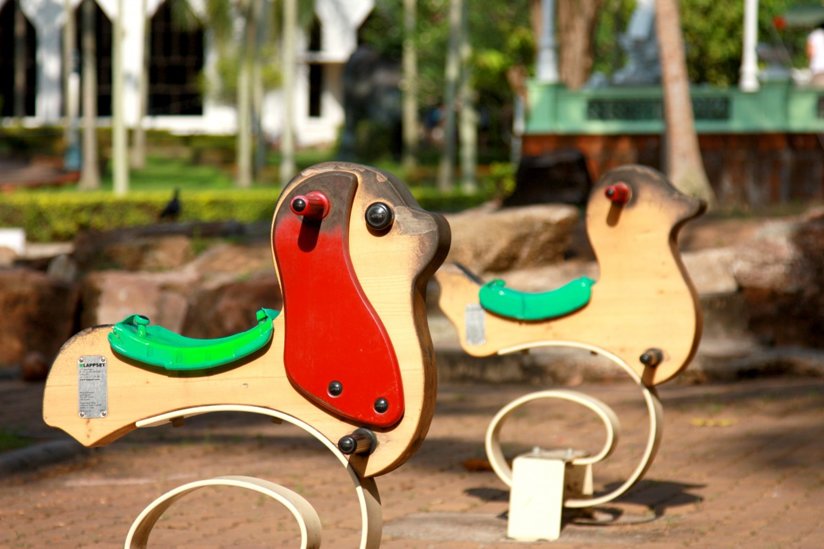
-
HOME
-
WHAT IS STANDOur Mission Our Values Our Help Contact
-
WHAT WE FIGHT FORReligious Freedom Religious Literacy Equality & Human Rights Inclusion & Respect Free Speech Responsible Journalism Corporate Accountability
-
RESOURCESExpert Studies Landmark Decisions White Papers FAQs David Miscavige Religious Freedom Resource Center Freedom of Religion & Human Rights Topic Index Priest-Penitent Privilege Islamophobia
-
HATE MONITORBiased Media Propagandists Hatemongers False Experts Hate Monitor Blog
-
NEWSROOMNews Media Watch Videos Blog
-
TAKE ACTIONCombat Hate & Discrimination Champion Freedom of Religion Demand Accountability
On Advice Not to Love, From Unhappy People
Do you remember where you were the first time you heard someone mock or criticize someone else? Someone that you got along with and you thought was just fine?
I remember pretty clearly. I was in kindergarten at recess.
We used to have to wear dresses to school which made it difficult to climb the monkey bars without having someone see your underpants. And apparently having someone see your underpants back then was a cardinal sin based on the nasty comment of the girl to my right, who pointed out with shock another little girl climbing the monkey bars, dress flapping and underpants shining, without a care in the world.
Immediately I felt a sense of confusion. The climber was my friend. Was I wrong to love this little girl who so brazenly let her underpants show? Have I accidentally let mine show and caused such upset in the past?

From that moment on, I began worrying constantly about my underwear. Was it showing anywhere?
And as time went on and more people criticized others in my presence, I started worrying more and more about what others thought of me. After all, the persons being criticized had no idea they were sinning so dramatically. If they were blissfully clueless of their wild indiscretions, how could I know if I ever was accidentally committing some?
And the number of transgressions that caused apparent upset in certain people grew and grew—from the mannerisms someone exhibited to every aspect of their appearance—until I was afraid to go out for fear of inadvertently causing offense, and thus being criticized as if I should have divined everything that could possibly raise eyebrows.
Aren’t we tired of taking advice from unhappy people? Doesn’t it stand to reason that, since their advice and counsel has not made them happy, it might make us unhappy too?
This launched a painful period of abject shyness and introversion that took me a long time to shed.
When a “friend” would criticize another friend, I would feel that same sense of confusion and upset. After all, what would that person say about me, out of my presence?
For some reason, I never stopped to think that it just might be an irrational act to call out someone else’s social faux pas or fancied indiscretion in an effort to destroy their reputation. And yet it is.
The first time this idea occurred to me was when I was in my early twenties and had walked into a Church of Scientology. A staff member there took one look at me and realized what education I needed. He signed me up for the “Ups and Downs in Life” course, based on the writings of L. Ron Hubbard.
And the world, which had been existing upside down for all these years, suddenly turned right-side up.
The feelings of confusion and upset were replaced with a knowledge and certainty that I was correct in loving these people who had been so roundly criticized and that any fault did not lie with them but with the faultfinder.
And I see this same type of weird and baseless criticism being leveled at members of certain religions. My LDS friends have to deal with it, my Jewish friends have to deal with it and I, as a Scientologist, occasionally have to deal with it too.
And we have to ask ourselves why. Why should we have to defend our God-given right to believe what we find true and to practice our religion as we wish?
The answer is, we don’t.

People who are critical of others tend to spread lies without looking to see if any of them are true. They are the first to believe something bad about someone. They are unhappy people in my observation. And those who invent the harmful lies to spread are even more unhappy.
Unhappy people are, unfortunately, not fountains of truth. They see the world through eyes grown jaded and tend to see the worst in people where you and I might try to see the best.
Aren’t we tired of taking advice from unhappy people? Doesn’t it stand to reason that, since their advice and counsel has not made them happy, it might make us unhappy too?
I have to wonder if we could magically cancel any unwarranted, negative comments heard from others in the past, any undue criticisms, any nasty rumors and lies, what would we actually think about life and the people we share it with? What would the world look like to us if that were possible? And how would we feel about each other?
We cannot necessarily change the past, but we can change the future. We can personally discount these critics without a second thought. And that, right there, might completely change our lives.
I am going to try it. I want to be happy. And I want to love my lovable friends.









